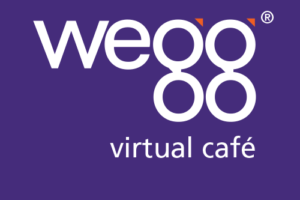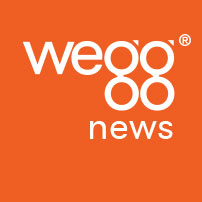
Summary of the May 6, 2020, weggchat® with Ursula Wegrzynowicz, Founder, Emelev, LLC
“The Export-Import Bank of the United States (EXIM): What They Can and Can’t Do”
Summary of the May 6, 2020, weggchat® with Ursula Wegrzynowicz, Founder, Emelev, LLC
W = wegg®
U = Ursula
W: Good morning, Ursula! Thank you for joining us today on our #weggchat. How did you get started in the field of international trade finance and why?
U: I became interested in international trade in college and had an opportunity to be the World Trade Organization rep at a Model UN session in NYC. It was an awesome experience. I knew then I wanted to study global trade, so I applied to grad school in DC, at the School of International Service at American University. While there, I completed a co-op at EXIM Bank.
W: How many years of experience do you have?
U: I started my career at EXIM Bank officially in summer of 1998, but had already been at the bank for more than a year, so I am nearing a quarter century in this field.
W: Before we get into EXIM Bank, first tell us about your business, Emelev, LLC.
U: Ever since I worked at EXIM Bank, I loved working with small businesses. I derive a lot of satisfaction from working with the owner(s) or senior management at privately owned manufacturers around the Midwest. Although manufacturing has shrunk as a contributor to GDP overall, it is still a vital component of the economy and provides well paid jobs—especially those manufacturers that are exporters. Studies show exporters, whose customer base is more diverse, pay 15% higher wages. My parents emigrated from Poland and worked in manufacturing, which provided me a solid middle-class upbringing. I want to support these businesses, because their workers are depending on their success.
W: Last year you were awarded the New Broker of the Year Award, EXIM Bank. How did you earn that award?
U: Ha! That was such a surprise; I had hoped to earn it down the line, but it was such a pleasant surprise that it came as soon as it did. The metric EXIM Bank used was the number of new small business clients brought to the bank that became clients.
W: What does EXIM Bank offer and why is it so special to exporters?
U: EXIM Bank offers a number of financial products to support US exporters’ growth overseas. A majority of US exporters use EXIM Bank’s foreign accounts receivable insurance. The insurance, also available from a variety of private insurance companies, gives the US exporter:
(1) The ability to offer credit terms to a customer in a foreign company that they wouldn’t necessarily do on their own because of the risk of non-payment,
(2) For US exporters that already offer credit internationally, the insurance gives them the ability to offer longer terms and/or higher credit limits, which helps the US exporter cement that relationship, and
(3) The insurance gives the exporter the ability to use those insured receivables as collateral. Banks do not consider foreign receivables as collateral unless they are insured. For a lot of exporters, getting this insurance is a big boost to their line of credit that is already in place.
Recently, EXIM Bank relaxed their credit standards; for example, they previously required financial statements on buyers with $300k in exposure. Now that has been increased to $500k.
W: Where do most SMEs really blow it when it comes to EXIM Bank’s offerings and why?
U: Thank you for asking this question! US exporters blow it by not listening to their advisors! Most EXIM Bank users are an established business, so they already have an accountant, banker, and attorney on retainer. As companies expand internationally, they need to make sure those advisors have knowledge in international trade and they also need to establish a working relationship with a freight forwarder because it will be their best friend on so many levels.
W: EXIM Bank has four new initiatives for SMEs. Let’s tackle them one by one. Talk about the Bridge Financing Program.
U: Before we jump into the new programs, I want to quickly review what EXIM Bank is doing for existing customers, because some on the chat may already be working with EXIM. Even those who are not, these measures are typical responses from EXIM during natural or economic disasters.
US exporters that currently have credit insurance from EXIM Bank have the ability to extend payment terms to any foreign customer invoices coming due between Feb 1 and June 1 by 90 days. Many companies, even here in the US, are delaying payments, and this essentially allows the US exporter to extend the payment by 90 days without asking EXIM’s permission first. If necessary, a claim can be filed and the deadline has also been extended by 90 days.
1) The Bridge Financing Program is offered to IMPORTERS of US equipment, so the US exporter is an indirect beneficiary. Buyers who cannot access local financing to purchase US equipment may be eligible for a loan guarantee or direct loan from EXIM Bank for up to one year, with the option to extend. The purpose of this program to fill the void in private sector liquidity and extend one-year loans, which can either be extended by EXIM Bank or refinanced by the private sector, once private sector liquidity returns. Extensions from EXIM Bank will be available up to 5 years or, in some cases, 10 years, depending on the economic conditions, the buyer’s industry, and demand.
2) The Pre-Delivery/Pre-Export Financing Program helps exporters that build custom capital equipment for export and have a long lead time (think satellites, turbines and such). Typically, the US exporter would require the buyer to (a) provide progress payments or (b) if EXIM was going to finance the purchase by the foreign buyer under their medium/long term program, then the US exporter would be able to borrow from a local bank to fund the build out. Today, that commercial financing is not necessarily available and the importer is unable to provide the down payments.
The program benefits the US exporter indirectly. It is intended to provide financing to a foreign importer purchasing US capital equipment. The equipment does not necessarily have to be custom, however, the manufacturing time is often many months (6-12) and the US exporter needs the buyer to fund part of the build out. If I were advising the US exporter, I would tell them they either (1) require down payments or (2) a letter of credit to protect themselves against the buyer cancelling the order. Through this program, EXIM is trying to fill any funding gaps in the marketplace to keep these types of deals going.
EXIM Bank is addressing this issue in two ways (a) if EXIM is providing the foreign buyer with multiyear financing for the purchase of the equipment, it is now allowing progress payments to the US exporter, which was not done before; previously the US exporter would have received funding after shipment. (b) Even if EXIM is not providing multiyear financing on the purchase of the equipment, it is still able to provide financing for up to one year (possibly longer) to the foreign buyer to make these progress payments.
3) The Supply Chain Financing Guarantee Program bridges the gap between the time the US exporter wants to pay suppliers and when their suppliers need to be paid. We’ve all heard the stories of large companies pushing small business suppliers to provide net 90, 120, and even 180 day terms. Most small business cannot afford these lengths of time and prefer to get paid in 60 or, even better, 30 day terms. The purpose of the Supply Chain Financing Guarantee is to give suppliers the ability to get paid on their terms (net 30), while giving the US exporter net 120 day terms. The commercial bank is financing the gap.
The benefit to small businesses is that this is not a loan from the bank, but rather they are discounting their receivables. The bank underwrites the US exporter. What is EXIM’s role? It provides the lender with a 90% principal and interest guarantee that enhances the lender’s willingness to extend that type of loan—which in today’s environment, will be necessary.
4) The Working Capital Guarantee Program. Both EXIM Bank and the Small Business Association (SBA) offer a working capital guarantee program. In either case, the loan is made directly by US banks for the benefit of a US exporter who needs cash to fulfill an international purchase order. EXIM provides the bank a 90% principal and interest guarantee to entice the bank to make the loan.
There have been some changes to the program: (a) fees have been lowered for the US exporter if they access this loan direct from their lender; (b) previously, the exporter had to segregate domestic inventory from export inventory, but now all inventory can be used to support the loan, which for most companies will increase the size of the loan and therefore access to cash; and (c) EXIM has reduced the barrier to this type of loan guarantee by waiving the requirement for the US exporter to present audited financial statements to their banker; additionally the bank facilitating the loan guarantee is not required to do collateral inspections, which reduces the cost of the program which is a benefit to the US exporter.
The WCG program requires an exporter provide audited financial statements for loan amounts of $5MM+, but under the current circumstances, EXIM is waiving that requirement. An example of a “technical feature” that is being waived by EXIM to qualify for the WCG is that EXIM is no longer requiring collateral inspections typically required for loans over $1mm. Keep in mind that in 90% of EXIM’s WCG deals, the actual transaction is being handled by a “delegated authority” bank, such as Wintrust. EXIM has set out all these parameters the banks must follow in order to make the guarantee valid. The exporter is getting the loan from Wintrust and Wintrust is getting a 90% principal & interest guarantee from EXIM to protect Wintrust against default.
For more on these initiatives, visit: www.exim.gov/coronavirus-response.
W: Let’s jump to our current situation. What happens if a business started an EXIM Bank application in the middle of the COVID-19 crisis but didn’t complete it?
U: That depends on what program the US exporter is applying for. If it is for a credit insurance policy, the underwriters may ask additional questions about the foreign customers, depending on the country being sold to and the industry. That being said, US exporters should not be deterred from pursuing coverage or obtaining financing.
W: Is cyber fraud something exporters should be even more fearful of now and, if so, why?
U: We’ve all read stories of scammers accessing stimulus funds from those who need it most. It’s always important to be careful, but even more so in this environment. Exporters should double and triple check on payments with customers and vendors alike, especially if there are changes being requested in terms of banking information. There is nothing like picking up the phone and verifying. It’s more difficult with foreign customers (and vendors), but the effort may save a lot of time, money and aggravation. And, what a great time to check in! The effort could pay dividends for a long time to come.
Say I receive a purchase order from a company in Argentina. How do I test its validity on all levels? If this is an order out of the blue, rather than an order you have been expecting from a prospect you’ve been working on for months, if not years, I would be skeptical and likely require prepayment—and not with a credit card, but cold hard cash in the form of a wire transfer or ACH (in the US). US exporters need to be aware that credit card payments can be reversed. The buyer can contact the credit card company and claim product dispute, for example, and after you thought you were paid, the funds will be debited. I’d be very reluctant to use this form of payment, especially with a brand new customer.
If, on the other hand, the order has been expected, then check in with the customer to ensure you’re on the same page about payment terms and who is handling the logistics. I’m a huge proponent of taking control. The US exporter should hire her own forwarder to move the goods to the foreign customer’s port. There are so many benefits to this. For one, if there is a problem with the shipment, you better believe you’ll be involved in troubleshooting, so you may as well be the one to choose the vendor to work with. Make sure that proper cargo insurance has been purchased so that if the goods are damaged or lost, you have recourse. Your customer will not want to pay for goods that are damaged or not received, but are you going to leave it to them to handle a cargo claim? They’re not paying you anyway, so there is not as much incentive. It’s your product, so it’s best that you file a claim. You don’t want to deal with someone else’s insurance company—it’s challenging enough as it is.
W: Like us, you’re a fan of minimizing losses. What are some best practices an exporter should take on a transaction so they can earn profits and sleep at night?
U: In the current situation, contact your foreign customer to confirm the validity of the PO. Check in to see how the customer’s operations are doing and ensure that the port you are shipping to is actually open. Beyond that, do the things you would normally do: (a) have a written PO, (b) control the shipment of your goods to the buyer’s port, (c) send them your invoice and make sure that when the goods arrive, all is in good order, and (d) stay in touch with the customer, especially as the invoice date nears, but also after. In my experience, that may mean picking up the phone. Some customers in Mexico, for example, are going to be more responsive to a phone call than an email.
W: Due to COVID-19, are there any prohibited exports or exceptions on exports right now? For example, personal protective equipment (PPE)?
U: Yes. On April 3, President Trump issued a memo on keeping PPE and related medical gear for domestic use. As a result, HHS, DHS, and FEMA have published a list of items in short supply, and therefore EXIM Bank is not supporting the export of these items. The list is dynamic and requires exporters to check what is permissible, but items such as respirators and PPE, including masks, gloves, Tyvek suits, face shields, and similar protective wear were prohibited.
W: What happens if a company ignores or fails to comply with a rule?
U: The worst-case scenario for a US exporter using an EXIM Bank product, which will be credit insurance, is that they fail to comply with an aspect of the policy that results in a claim denial. Regarding the working capital program and others, the onus is on the US commercial bank to comply with EXIM’s rule as they are the ones in a direct relationship with EXIM.
W: The COVID-19 pandemic is disrupting supply chains worldwide, prompting government agencies and international traders alike to change the way they do business. Any insights here?
U: The WTO has published this report about growing number of export restrictions around the world: www.wto.org/english/news_e/news20_e/rese_23apr20_e.htm. US exporters that have foreign suppliers need to look at diversified supply chains. Tariffs imposed by the US have already set in motion a decoupling with China, and that is likely to accelerate now.
W: Does EXIM Bank offer financing for American importers?
U: No. The best way to understand the “import” in EXIM’s Bank’s name is if you are sitting in Brasilia or Ankara or Seoul, EXIM can provide import financing—provided the product you’re importing is majority US made and the final shipment is from the US.
W: Thank you for sharing your expertise with us! Where’s the best place for people to visit to learn more on Emelev LLC and EXIM Bank?
U: Thank you! EXIM has a robust website, www.exim.gov, with some great educational videos. Emelev can be found at www.emelevllc.com or by calling me directly at (847) 518-5444.
W: Last question: what’s the one thing you’d like to leave everyone with that we missed?
U: My advice for US exporters is that they stay the course with the best practices they have set up and that they stay in touch with their advisors—their lenders, attorneys, accountants, and freight forwarders. All these advisors are staying updated on developments in their lanes and so it’s important for US exporters, who are undoubtedly stretched like never before, not let those best practice tips slip through the cracks.




